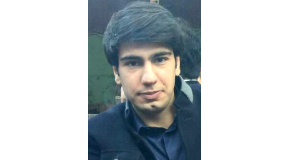
BY AHMET DURSUN (POLS/III)
ahmet.dursun@ug.bilkent.edu.tr
“I have never met anyone who didn’t like Erasmus,” a close friend of mine once said. Indeed, my experience with regard to the Erasmus student exchange program verifies her remarks. It was culturally eye-opening, intellectually rewarding and interpersonally formative. In other words, the program had a profound influence on my personal development. This shall be an attempt to reflect upon one of the abovementioned virtues of the program: Erasmus as a culturally eye-opening experience.
In a social psychology class at Bilkent University, we were taught that one of the reasons why people like each other has to do with familiarity. This suggests that the frequency with which we are exposed to a person might contribute to the likelihood of us forming an emotional intimacy with that particular person. This is because the more we see an individual, the faster our brains are able to process that individual’s face. Hence, the liking starts. This is, to a certain degree, why our best friends are always those whom we see continuously and who are physically close to us.
It seems to me that this sociopsychological observation might apply not only to our interpersonal relationships but also to our territorial environments. Intuitively speaking, there is a relationship between our affection toward the place where we are from and the fact that we are familiar with that place. To be sure, I am not aware of any research that shows a causal link between the two phenomena. Nevertheless, this tendency can be supported anectodetally.
Let me clarify the point with regard to familiarity first, then follow with the anecdote that I would like to share. Because we are used to being surrounded by the things that we were born into, we are inclined to attribute too many positive characteristics to them. We take it for granted, for example, that “our” homeland is the best piece of earth one can live on; that “our” people are the most moral; that “our” cuisine is the most delicious. On the other hand, however, we are unfamiliar with “the other.” The handicap of simultaneously possessing this familiarity with our accustomed surroundings and an unfamiliarity with “the other” is that it restricts our ability to look at ourselves objectively. Erasmus is a culturally eye-opening experience in that it allows one to be relatively successful at analyzing things in a less subjective manner. This is because, as “Erasmusers,” we are able to distance ourselves for a time from the phenomena that are familiar to us and are able to communicate with “the unfamiliar.”
The case in point has to do with the process of meeting new people. During the time my compatriots and I were in the UK, we found that some fellow Erasmus students would actually know something about the country we came from. Others, however, would not have a clue. At first, my impression was one of disappointment. It was probably a matter of ego: unconsciously associating my worthiness with the extent to which where I came from was recognized by others. Then, I figured, I don’t necessarily have sophisticated knowledge about any given country; why should somebody else be that interested in our homeland? It was then that the abovementioned sociopsychological phenomenon recurred to my mind, and I began to relate it to what I was currently experiencing. “Might the reason why we give so much credit to ourselves be the result of the fact that the symbols and values of our culture are embedded in us? Might this be the cause of our inability to appreciate others?” It seemed to me that we would have similiar tendencies toward valorizing ourselves if we had been born in another part of the world. That is, our brains would process the familiar phenomena, be they those of country X or country Y, more quickly, and we would tend to be emotionally close to them. Seen in this light, might not patriotism be derived from a “trick of destiny”?
What these thoughts brought about, in this respect, was an opportunity to be a relatively modest person. After all, we are coincidentally part of a certain culture, but what is more important is that all cultures come under the umbrella of a larger humanity. It follows from this that life should not be regarded as an arena where the duality of “we are the best” and “they are the worst” prevails. That is because this creates an antogonism, whereas in fact we have much to learn from each other. During my Erasmus exchange, I found this to actually be a “shared humbleness.” For example, a French friend of mine might be impressed by the “passive secularism” that the British have; that is, by how religion can be apparent in society in tandem with the fact that church and state are separated. Similarly, a Romanian student might admire the extent to which the British are aware of the taxation system and the fact that they make their decisions accordingly.
It was, in short, the Erasmus program that enabled me to be relatively less subjective regarding my environment. I am now of the opinion that it is only when one goes outside one’s comfort zone that one is truly able to appreciate the good in what is unfamiliar and embrace our larger humanity.
The writer spent the 2015 fall semester on an Erasmus exchange in the UK.
